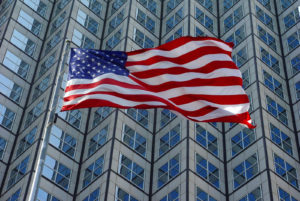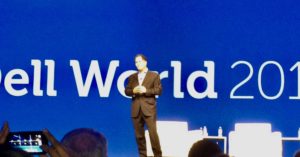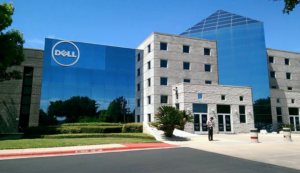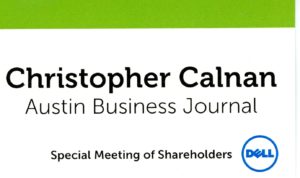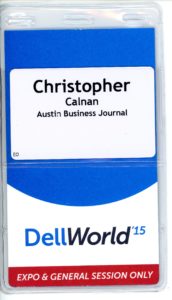
The Jan. 23 “Making Digital Globalization Inclusive” session in Davos, Switzerland. By World Economic Forum/Christian Clavadetscher
BOSTON — Recent proposals to narrow the wealth gap by taxing the ultra wealthy is gaining momentum and the charitable giving of billionaires like Michael Dell is now under increased scrutiny.
In January, Texas Gov. Greg Abbott recognized the Michael and Susan Dell Foundation for its 2017 contribution pledge to victims of Hurricane Harvey in Houston, the hometown of Dell, the technology industry executive.
The foundation pledged to donate $36 million to Houston residents whose lives were devastated by the storm. While the foundation’s contribution was noteworthy, it’s also important to recognize that five months after the donation it was revealed that Michael Dell bought a $100 million Manhattan apartment for himself, the Wall Street Journal reported. That means that the native Houstonian and the 39th richest person in the world spent nearly three times more on himself than the entire city in which he was raised.
Is that the type of largess worthy of an award by the state of Texas? In comparison, Houston Texans linebacker J.J. Watts, a Wisconsin native, raised $41.6 million for victims of Hurricane Harvey, according to the NFL.
Now, Dell is opposing tax reform claiming that it’s better for billionaires to select their own charities rather than back federal assistance programs. Just days after Abbott honored Dell’s foundation, Michael Dell dismissed proposals for a 70 percent marginal tax rate while appearing on a panel at the World Economic Forum in Davos, Switzerland.
“My wife and I set up a foundation about 20 years ago and we would’ve contributed quite a bit more than a 70 percent tax rate on my annual income,” Dell said during the panel, according to Bloomberg News. “I feel much more comfortable with our ability as a private foundation to allocate those funds than I do giving them to the government.”
Although he didn’t say it directly, Dell’s statement suggested that Americans should trust the company’s judgement — even though it has a history of poor judgement. Also, through donations to his foundation Dell pays a 70 percent tax rate on his annual income. But does he?
Dell’s foundation reported charitable donations of $101.5 million compared with revenue of $961.9 million during 2016, the latest year of publicly available reports filed with the Internal Revenue Service. That admittedly small sample size indicates that the foundation is spending just 10 percent of what it receives.
In January, Bloomberg reported that Michael Dell reaped a $12 billion windfall in December 2018 when he took his company public after operating it privately for five years. His net worth is now estimated to be about $27 billion. Such figures make his comment regarding contributing 70 percent of his annual income to charity seem puzzling.
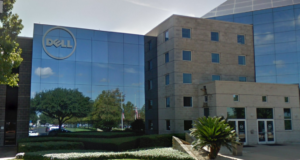 IMAGE CONTROL
IMAGE CONTROL
A February poll by Morning Consult and Politico found that 45 percent of Americans support a marginal tax rate; 32 percent oppose it. Of course, many billionaires object to tax reform for a variety of reasons, including greed and control. Distributing wealth through dubious philanthropies versus taxes enables the mega rich to control the narrative. Like the Hurricane Harvey donation, it allows them to portray themselves as heroes when they make a contribution that in relation to their total worth is actually marginal.
Such tactics are nothing new for Dell. The company has a history of skirting the truth to create an image that isn’t totally accurate.
For example, in 2010, the U.S. Securities and Exchange Commission fined Dell Inc., Michael Dell and senior executives for using rebates the company received from semiconductor maker Intel Corp. to inflate Dell’s quarterly revenue figures. Fraudulent accounting was employed to impress Wall Street analysts. Just like the Hurricane Harvey donation, Dell overstated conditions to enhance its image.
Unfortunately, such measures can lead to unintended consequences. In about 2012, BloombergNews published an extensive article with several former Dell employees making unflattering comments about Michael Dell’s micro-management style. The story, which included three reporter bylines, is now gone from the Web.
In a 2016 grotesque case of corporate censorship, the Austin Business Journal removed a story that questioned how a company donation may have played a role in Michael Dell receiving an award from a national environmental group. The result was more sanitized news. And then The New York Times reported in early 2018 that Michael Dell buys Twitter followers, an image-conscious tactic that celebrities use to make them appear more popular.
There’s more. Here in Boston, Michael Dell told a late 2017 gathering of the Boston College Chief Executives Club that his company, now called Dell Technologies, had spent $12.7 billion on research and development during the previous three years. The figure contradicted Dell’s filings with the SEC. A company spokeswoman later acknowledged that Dell was factoring in R&D spending of seven companies Dell Technologies acquired when it bought Massachusetts-based EMC Corp. in late 2016. Such incidents demonstrate how desperate Dell is to burnish its public image even when it’s at odds with reality.

Dell Technologies Inc. CEO Michael Dell in Davos. By World Economic Forum/ Christian Clavadetscher
DAVOS DEBACLE
The marginal tax question seemed to arise unexpectedly at the conference in Davos. Dell claimed that raising the tax rate for the ultra rich to 70 percent tax rate versus the current top limit of 37 percent would be bad for the country. This time, his effort to spin the truth like Intel rebates was readily apparent.
“No, I am not supportive of that, and I don’t think it would help the growth of the U.S. economy,” Dell asked the moderator. “Name a country where that’s worked, ever.”
Erik Brynjolfsson, director of the MIT Center for Digital Business and seated to Dell’s immediate left, was quick to respond. He said it actually worked quite well in the United States from the 1930s through the 1960s. That’s when the nation’s economy thrived under an average tax rate of 70 percent.
“I don’t have a strong opinion on that proposal, the devil is in the details” said Brynjolfsson who is also a professor at MIT’s prestigious Sloan School of Management. “But I think there’s a lot of economics that suggest that it’s not necessarily going to hurt growth.”
Dell had no immediate response for Brynjolfsson. But his dismissive comments about tax reform gained international media attention. Ironically, Dell took to Twitter in an effort to save face. In a humble brag he indicated that his lack of understanding was due to the noble founding of a computer company while a student at the University of Texas.
“Maybe if I hadn’t dropped out @UTAustin at 19 to start @Dell I would have learned more about history of taxes + probably many other things I missed along the way,” he tweeted. “I certainly have much to learn but I have no regrets about my life journey.”
It’s notable that Dell’s tweet generated 75 comments, according to his Twitter account. However, it’s unclear how many of those comments were favorable — or written by followers that Dell had bought.


